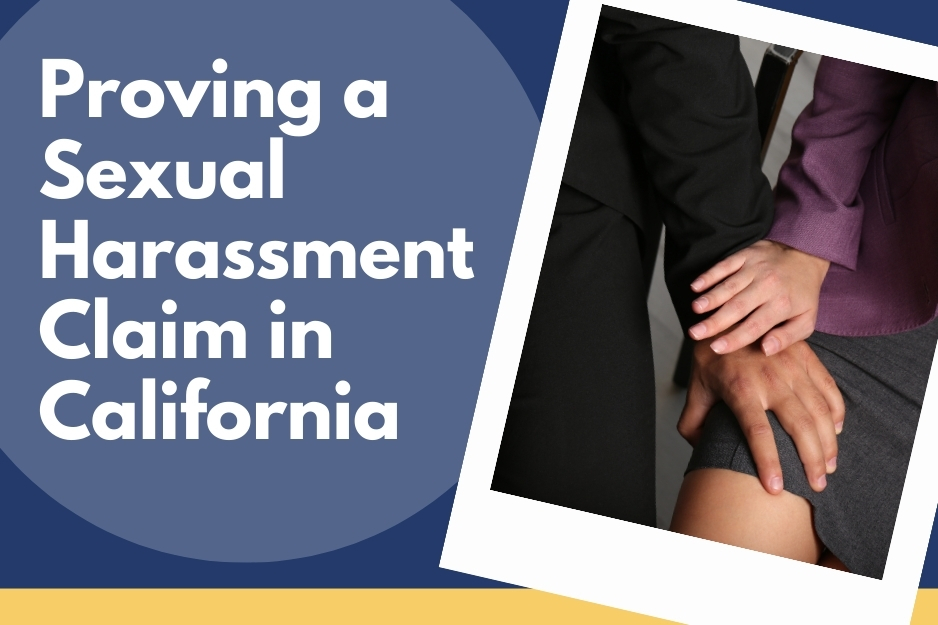
Your Rights When Fired for Salary Conversations at Work
Imagine this: You’re having lunch with a colleague when the conversation turns to compensation. A week later, you’re called into HR and told you’re being let go for "not being a team player." If this sounds familiar, you may have been wrongfully terminated for exercising your legal right to discuss wages. Under federal law, specifically the National Labor Relations Act (NLRA), you have the fundamental right to communicate with your coworkers about compensation, whether during breaks, after work, or even during work hours if other non-work conversations are permitted. Many employees don’t realize that firing someone for wage discussions constitutes illegal retaliation that can lead to serious legal consequences for employers.
💡 Pro Tip: Document everything immediately after termination, including the exact reasons given, witnesses present, and any prior wage discussions you had with coworkers.
Caught in a bind over wage discussions at work? It’s time to make your move. Reach out to RD Law Group APC, and let us help you navigate the complexities of wrongful termination. Call us at (424) 535-1500 or contact us to take the first step toward justice.
Understanding Your Right to Discuss Wages and Protection from Retaliation
The National Labor Relations Act provides robust protections for employees who discuss compensation with their colleagues. This federal law applies whether or not you’re represented by a union, giving you the freedom to have conversations about how much you and your managers make, present joint requests about pay to your employer, or even organize to raise wages. Your employer cannot legally fire, demote, discipline, or take any adverse action against you for engaging in these protected activities. The law recognizes that wage transparency is essential for workplace fairness and preventing discriminatory pay practices. While discussing wages with coworkers, many employees also discover other workplace violations, leading them to consult with a pregnancy discrimination lawyer who can identify multiple forms of illegal workplace treatment occurring simultaneously.
California law provides even stronger protections than federal requirements. The state’s labor code explicitly prohibits employers from requiring employees to sign agreements preventing wage discussions or from retaliating against workers who share salary information. This means that any company policy, whether written or verbal, that forbids salary discussions is inherently illegal in California. Employers who willfully violate these wage and hour laws may face both civil penalties and criminal prosecution. If you’ve been terminated for discussing wages, you have multiple avenues for legal recourse, including filing complaints with the NLRB, the California Labor Commissioner, or pursuing a wrongful termination lawsuit.
💡 Pro Tip: Save copies of any employee handbook provisions or emails that discourage wage discussions—these can serve as powerful evidence of illegal company policies.
What Happens After Wrongful Termination for Wage Discussions
Understanding the timeline after a wrongful termination helps you protect your rights and maximize your chances of a successful claim. The process typically begins immediately after your termination, when you should document everything about the circumstances leading to your firing. Time is critical because various deadlines apply to different types of claims. When an employee faces termination for discussing wages, consulting with a pregnancy discrimination lawyer or employment attorney quickly ensures you don’t miss important filing deadlines that could impact your ability to seek justice and compensation.
- Within 24-48 hours: Document all details of your termination, including dates, times, witnesses, and exact words used by management
- Within 180 days: File an unfair labor practice charge with the NLRB by calling 844-762-6572 or using their e-filing system
- Within 300 days: Submit any applicable EEOC complaints if discrimination played a role in your termination
- Within 2 years: File a wrongful termination lawsuit in California court (though acting sooner is always better)
- 3-6 months typical: NLRB investigation period, though complex cases may take longer
- 12-18 months average: Resolution time for wrongful termination lawsuits that go to trial
💡 Pro Tip: Create a timeline of all wage-related conversations you had before termination, including dates, participants, and topics discussed—this helps establish the connection between protected activity and retaliation.
Fighting Back Against Illegal Termination with Experienced Legal Representation
When you’ve been fired for discussing wages, you have several powerful legal options available. Filing a complaint with the National Labor Relations Board often provides the fastest path to resolution, as the NLRB can order your reinstatement with back pay and require your employer to post notices about employee rights. However, pursuing a wrongful termination lawsuit through the California courts may result in more comprehensive compensation, including damages for emotional distress and punitive damages against employers who knowingly violated the law. Working with RD Law Group APC ensures you explore all available remedies, as their attorneys understand both federal and state protections for wage discussions. A pregnancy discrimination lawyer from the firm can also identify if your termination involved multiple forms of illegal discrimination or retaliation that strengthen your overall case.
💡 Pro Tip: Request a copy of your personnel file immediately after termination—California law requires employers to provide this within 30 days, and it often contains evidence helpful to your case.
Recognizing Workplace Retaliation Beyond Obvious Termination
Workplace retaliation for wage discussions doesn’t always manifest as immediate termination. Employers often engage in subtler forms of retaliation designed to force employees to quit or create documentation for future termination. You might suddenly receive negative performance reviews despite no change in your work quality, find yourself excluded from important meetings or projects, or face schedule changes that make your job impossible to maintain. Some employers transfer employees to less desirable positions or locations, reduce their hours, or create hostile work environments through increased scrutiny and criticism. Understanding these tactics helps you document patterns of retaliation that strengthen your legal claim. Employees facing multiple forms of workplace discrimination should consult with a pregnancy discrimination lawyer who can identify how various illegal practices intersect in your situation.
The Paper Trail of Retaliation
Sophisticated employers often attempt to create false justifications for termination after learning about protected wage discussions. You might suddenly receive written warnings for minor infractions previously ignored, face discipline for vague violations like "attitude problems," or find yourself subject to different standards than your coworkers. This manufactured paper trail aims to disguise illegal retaliation as legitimate termination. However, the timing of these actions—particularly if they begin shortly after wage discussions—often reveals their true retaliatory nature. Courts and agencies look closely at temporal proximity between protected activities and adverse employment actions. Document every instance of differential treatment, save all communications, and note witnesses to each incident.
💡 Pro Tip: Email yourself detailed notes about each incident of potential retaliation immediately after it occurs, creating a timestamped record that’s harder to dispute than handwritten notes.
Your Pregnancy Discrimination Lawyer Protects Multiple Workplace Rights
Employees terminated for wage discussions often discover they’ve experienced other forms of illegal workplace treatment. The same employers who violate wage discussion rights frequently engage in discriminatory pay practices based on gender, race, pregnancy status, or other protected characteristics. This interconnection of workplace violations means that consulting with a pregnancy discrimination lawyer can reveal multiple legal claims arising from your situation. For instance, you might have discussed wages because you discovered male colleagues earned more for the same work, or learned that employees returning from maternity leave received lower raises. These compound violations strengthen your case and may increase potential compensation. Your right to discuss wages serves as a crucial tool for uncovering and addressing workplace discrimination that might otherwise remain hidden.
Federal and State Protections Work Together
California employees benefit from overlapping federal and state protections that create multiple avenues for justice. While the NLRA provides baseline protections for wage discussions, California Labor Code sections offer additional remedies and stricter penalties for employers. The state’s Private Attorneys General Act (PAGA) even allows employees to pursue claims on behalf of the state, potentially recovering civil penalties for widespread violations. This dual-layer protection means that even if one claim faces challenges, others may succeed. Understanding how to leverage both federal and state law requires experienced legal guidance, particularly when your termination involves multiple violations across different legal frameworks.
💡 Pro Tip: Keep records of wage discussions with dates and participants—California’s two-party consent law for recordings doesn’t apply to your own documentation of conversations you participated in.
Frequently Asked Questions
Common Legal Questions About Wage Discussion Rights
Understanding your rights regarding wage discussions and wrongful termination helps you make informed decisions about protecting yourself and seeking justice. These questions address the most common concerns employees face when terminated for exercising their legal rights.
💡 Pro Tip: Prepare these questions and your specific situation details before consulting with an attorney to maximize your consultation time.
Next Steps After Wrongful Termination
Taking prompt action after wrongful termination protects your rights and strengthens your case. Understanding the legal process helps you navigate this challenging time with confidence.
💡 Pro Tip: Start a detailed journal documenting your job search efforts and any emotional or financial impacts from the termination—this information supports damage calculations.
1. Can my employer fire me for discussing salaries during lunch breaks in Los Angeles?
No, your employer cannot legally fire you for discussing wages during breaks, lunch, or any time when other non-work conversations are permitted. This protection applies throughout California and is guaranteed by both federal and state law. Even if your employee handbook prohibits salary discussions, such policies are illegal and unenforceable.
2. What damages can I recover with a wrongful termination lawsuit in California?
California wrongful termination cases can result in various damages including lost wages (both past and future), benefits, emotional distress compensation, and in cases of willful violations, punitive damages. You may also recover attorney’s fees and costs. The specific amount depends on factors like your salary, length of unemployment, and the egregiousness of your employer’s conduct.
3. Do I need proof that I was fired specifically for wage discussions?
While direct proof helps, it’s not always necessary. Courts recognize that employers rarely admit to illegal retaliation. Circumstantial evidence like timing (termination shortly after wage discussions), disparate treatment compared to other employees, or shifting explanations for your termination can establish a strong retaliation claim. An experienced attorney can help build your case even without a "smoking gun."
4. How long do I have to file a wrongful termination case in California?
Different deadlines apply depending on your chosen legal avenue. NLRB charges must be filed within 180 days of the illegal action. California wrongful termination lawsuits generally have a two-year statute of limitations, though some claims may have different deadlines. Because time limits vary and missing deadlines can bar your claim entirely, consult with an attorney immediately after termination.
5. Should I accept a severance package if I was fired for discussing wages?
Never sign a severance agreement without legal review, especially if you believe you were wrongfully terminated. Severance packages typically include releases that waive your right to pursue legal claims. An attorney can evaluate whether the offered amount fairly compensates you for giving up potentially valuable legal rights and may negotiate better terms that protect your interests.
Work with a Trusted Wrongful Termination Lawyer
Facing wrongful termination for exercising your legal right to discuss wages requires skilled legal representation that understands both the complexities of employment law and the tactics employers use to disguise illegal retaliation. RD Law Group APC brings extensive experience in wrongful termination cases throughout California, helping employees recover compensation and hold employers accountable for violating workplace rights. Their attorneys understand how wage discussion rights intersect with other employment protections, ensuring comprehensive representation that addresses all aspects of your case. Whether pursuing NLRB complaints, state agency claims, or civil litigation, having knowledgeable legal counsel maximizes your chances of achieving justice and fair compensation for the harm you’ve suffered.
Feeling unsure about where you stand with wage discussions at work? Take charge and connect with RD Law Group APC for guidance through the maze of wrongful termination. Dial (424) 535-1500 or contact us today and step confidently toward protecting your rights.




